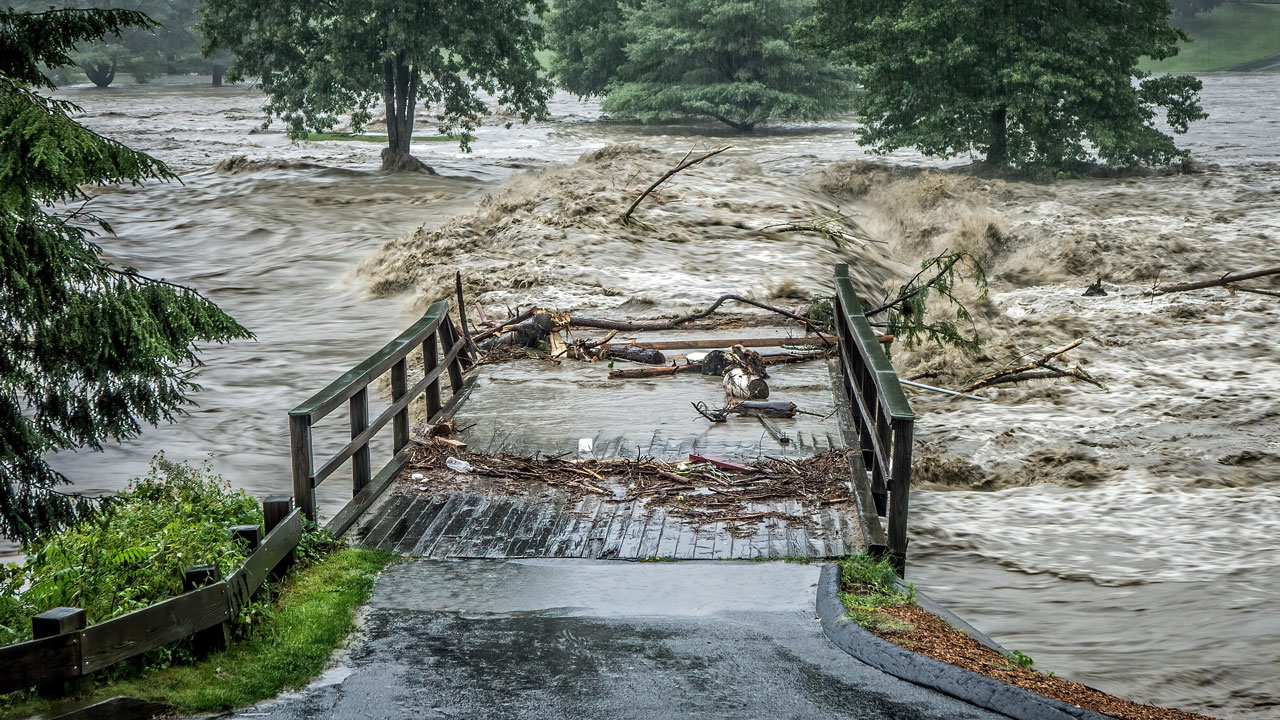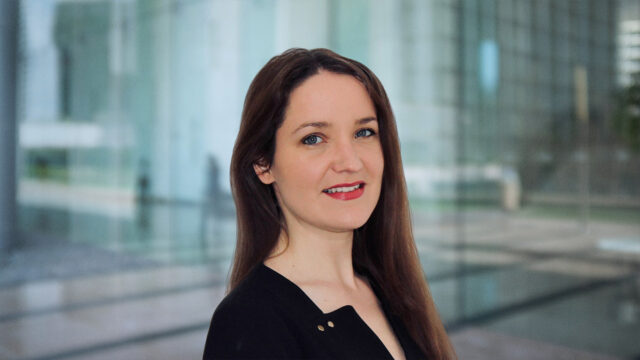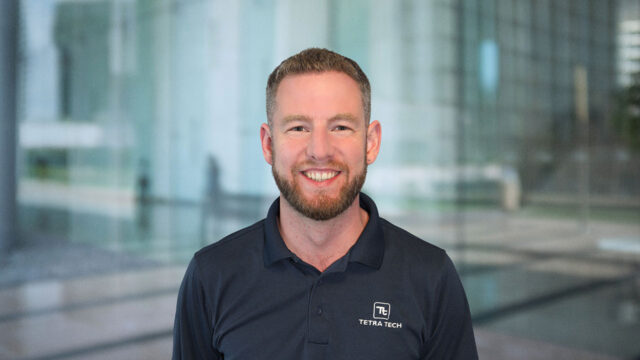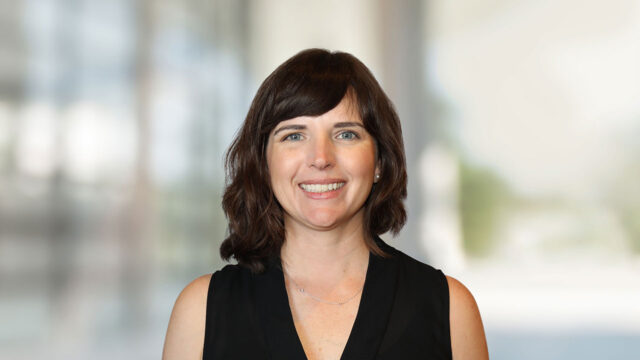
Communities and businesses around the world face mounting challenges from increasingly frequent and intense weather events.
At Tetra Tech we are constantly innovating to help our clients take a holistic approach to planning, preparing for, and, when needed, recovering from extreme weather. We asked experts from our disaster recovery and water practices about practical solutions that address immediate needs while prioritizing the long-term health of infrastructure and the environment around the world.
How are we supporting the resilience of communities facing weather extremes?
Allison McLeary, Director, Emergency Management and Disaster Recovery Programs
Preparing for and recovering from disasters
The scale and frequency of catastrophic disasters are growing at a nearly exponential pace, with disasters occurring in locations that have not historically experienced these events. The hurricanes of last year showed us that the effects of wind and water can be felt far inland and cause widespread damage hundreds of miles from our coastlines. Being prepared for the inevitable has become a required exercise for all civic leaders.
Communities must be ready to respond at scale, guide the recovery of their whole community, mitigate future risks, and prepare for the inevitable next event. Disasters touch every aspect of the affected community, and a data-driven approach to disasters is key to an effective response, a complete recovery, and a better prepared, more resilient community. Key to this is knowledge of your community’s vulnerabilities and leveraging that insight to create data-driven solutions tailored for your community.
Tetra Tech’s technology solutions can provide the framework for every community to prepare for, respond to, recover from, and mitigate against disasters. Our FusionMap® and OceansMap™ software help communities proactively monitor and respond to emerging conditions. RecoveryTrac® software suite supports the response and recovery phases. The BATool Program tracks preparedness and mitigation activities and plan development. Large-scale damage assessments, visualization of mitigation solutions, and large-scale financial management all pose challenges—the answer to which is to use technology to more efficiently navigate a community’s response to disasters.
Residents are safer when their communities are prepared. We are in this together, and communities can call upon Tetra Tech as we take a Leading with Science® approach to their pre- and post-disaster needs.
Jarrett Kinslow, U.S. National Technical Leader – Water Treatment
Securing resilient water supplies in water-scarce areas
Our water treatment teams start every project with insight from our clients and draw from our experience and imagination to provide solutions. I like to say that we “paint with process,” recognizing the combination of inspiration and experience that is the mark of a successful project. A new design solution is like a new work of art, and how we draw from technology to address our clients’ needs and goals is much like how a painting tells a story to each observer.
In areas where freshwater availability is limited, Tetra Tech is Leading with Science by bringing innovation to communities’ water supplies through the use of brackish water. In many cases, the need to utilize brackish water supplies is a byproduct of water scarcity resulting from population growth, often made worse through drought conditions. Tetra Tech is the trusted partner for many drinking water utilities that are developing their locally available brackish water supplies to provide new, drought-resistant sources of supply.
Tetra Tech reduces the energy footprint of these critical alternative water supply projects through advances in membrane water treatment processes, incorporating energy recovery technology to mechanically capture and reuse residual energy from the process, and integrating high performance and green building design concepts into our solutions.
We continue to work with our clients to create secure water supplies that advance resilience for the surrounding communities that they serve.
Enhancing river health in the face of increased flooding
The health of the UK’s rivers is under significant threat from pollution, flooding, and biodiversity loss, exacerbated by increasingly frequent and extreme weather events. To address these challenges, we use a holistic approach that integrates traditional engineering with smart sewer systems and nature-based solutions.
While concrete channels and flood defenses may provide short-term relief, they fail to tackle the underlying causes of river degradation. Instead, we help communities adopt smart sewer technologies that use real-time data to monitor and manage wastewater, reducing pollution incidents and enhancing stormwater management.
Additionally, nature-based solutions, such as wetland restoration and green infrastructure, play a crucial role in improving water quality and fostering biodiversity. These initiatives not only mitigate flooding risks but also engage communities in conservation efforts, fostering a sense of stewardship.
Through projects like United Utilities’ Better Rivers Framework, we demonstrate the effectiveness of combining these strategies. By integrating smart technologies with nature-based approaches, we can significantly improve river health, reduce costs, and enhance community resilience.
As the UK enters AMP8, these innovative solutions are necessary to secure the future of our waterways and the communities that rely on them. Together, we can create a resilient environment for generations to come.


